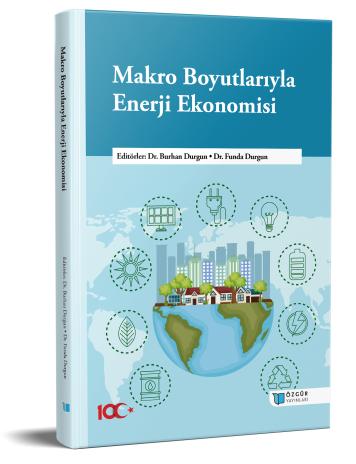
Yenilenebilen ve Yenilenemeyen Enerji Tüketiminin Ekonomik Büyüme Üzerindeki Etkisi: BRICS Ülkeleri Örneği
Şu kitabın bölümü:
Durgun,
B.
&
Durgun,
F.
(eds.)
2023.
Makro Boyutlarıyla Enerji Ekonomisi.
Özet
Sanayi devrimiyle birlikte üretimde kullanılan makinelerin insan gücünün yerini alması enerji sektörünü tüm devletlerin gözdesi haline getirmiştir. Daha yüksek ekonomik büyümeyi elde etmek için daha fazla enerji tüketimi kaçınılmaz hale gelmiştir. Artan enerji talebiyle beraber, yenilenemez kaynaklardan üretilen enerji tüketiminin çevresel bozulma üzerindeki etkisi son yılların araştırma konusu olmuştur. Yenilenemez enerjinin çevre kirliği üzerindeki baskısını azaltmak amacıyla alternatif enerji kaynağı olan yenilenebilir enerji teşvik edilmiştir. Literatürdeki birçok araştırma yenilenebilir enerji ile çevresel bozulma üzerindeki ilişkiyi incelerken yenilenebilir enerjinin ekonomik büyüme üzerindeki etkisi ise daha az çalışılmıştır. Bu sebeple çalışmamızda yenilenebilir enerji ile yenilenemez enerji tüketiminin BRICS (Brezilya, Rusya, Hindistan, Çin ve Güney Afrika) ülkelerinin ekonomik büyüme üzerindeki etkisi sabit etkiler metodu kullanılarak 1990-2019 yılları boyunca incelenmiştir. Çalışmanın bulguları hem yenilenebilir enerjinin hem de yenilenemez enerjinin ekonomik büyüme üzerindeki pozitif etkisini ortaya koymasına rağmen, yenilenebilir enerjinin büyüme üzerindeki olumlu etkisinin daha fazla olduğunu göstermiştir. Sabit etkiler modeline ilaveten sağlamlık testi olarak sistem genelleştirilmiş momentler yöntemi (GMM) kullanılmış ve elde edilen bulgular yenilenebilir enerjinin ekonomik büyüme üzerindeki etkisinin daha büyük olduğunu doğrulamıştır. Çalışmanın sonucu, yenilenebilir enerji tüketiminin teşvik edilmesinin, sadece çevresel bozulmanın önlenmesine katkıda bulunmakla kalmayıp aynı zamanda ekonomik büyümeye de yenilenemez enerji tüketiminden daha fazla katkı sağladığını göstermektedir.

